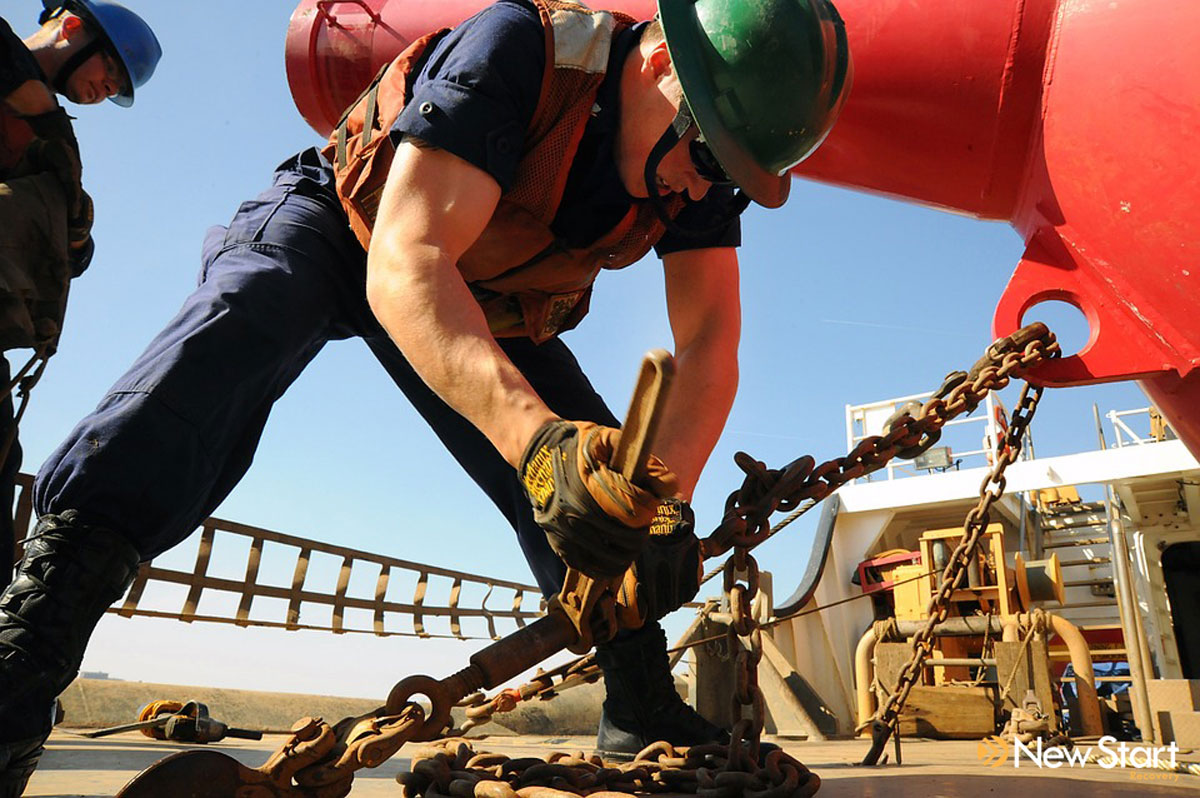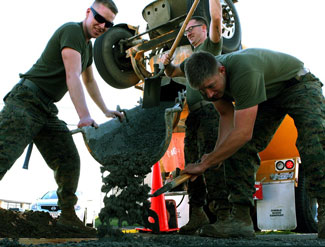For many people, the first thing they do when they get home from work is grab a cold beer from the fridge. It has become a symbol of winding down and relaxing after a long day. A lot of people feel like they actually need that little depressant in order to essentially wash away the stress and aches of the day. But if an accountant or office executive feels worn out and exhausted after work, imagine a long day of laying down roofing three stories high in 100-degree weather. Construction workers do hard jobs and come home aching, hot, and worn down. That’s not to say that accounting or delegating office work aren’t hard too in their own rights.

But there’s definitely a reason that the construction industry employs more people with substance abuse disorders than almost any other industry.
Rates of Substance Abuse Among Construction Workers
The construction industry employs over 10.3 million workers. Because so many are employed, the rates of diversity – between race, culture, and job title – are also very high. People tend to picture construction workers as just the men on half-built hotels who hold hammers and direct crane operators. But the construction industry is filled with many different job functions, including laborers, carpenters, roofers, electricians, and managers.
The construction industry has the second highest percentage of employees who suffer from substance abuse disorders.
14.3% of construction workers suffer from addiction to substances
Just for reference, the national average rate of substance abuse disorders among Americans age 12 or older is about 9%. The high rates in construction could partially be due to the high rates of diversity among workers. But that doesn’t exactly explain the difference in rates between construction workers and the national average, as the nation as a whole also is inclusive of high diversity.
Reasons for High Substance Abuse Rates in the Construction Industry:
A Remedy for Hard Labor
 I’m just going to state the obvious here and say that construction is hard. Workers deal with intense labor for long hours in environments that typically aren’t pleasant. The work is dirty, tough, and strenuous. So, construction workers generally have to deal with the consequential sores, aches, and chronic pain that result from their everyday work. It makes sense that they’d come home looking for something to ease that pain. Many construction workers turn to alcohol and prescription painkillers as self-medication.
I’m just going to state the obvious here and say that construction is hard. Workers deal with intense labor for long hours in environments that typically aren’t pleasant. The work is dirty, tough, and strenuous. So, construction workers generally have to deal with the consequential sores, aches, and chronic pain that result from their everyday work. It makes sense that they’d come home looking for something to ease that pain. Many construction workers turn to alcohol and prescription painkillers as self-medication.
Alcohol and prescription painkillers can both relieve and distract from the pain of hard labor. But it’s only temporary. If the real issue isn’t addressed, workers will fall into chronic use of these substances as a way to constantly keep the aches at bay. But chronic use will soon lead to addiction. And all the while the real pain trigger hasn’t been appropriately addressed. So workers are left with chronic pain AND addiction.
Stress Relief
Virtually all jobs produce some amount of stress for employees. Office workers deal with micromanaging and tight deadlines, food service workers deal with extremely fast-paced environments and pleasing needy people, and entertainers deal with the spotlight and having to always be on. Construction workers deal with their own type of stress. Intense, strenuous work can cause stress. Having to stick to tight building codes can cause stress. Unexpected (but common) mishaps can cause stress. Malfunctions with tools and equipment can cause stress. Working with many different people all with different opinions, personalities, and work habits can cause stress. Inconsistent work can cause stress. Shall I go on?
Just like aches and chronic pain, stress can push someone to self-medicate. Construction workers might turn to illicit drugs and alcohol to help relieve some of that work stress.
In the past month:
5% of workers drank alcohol heavily
6% of workers used illicit drugs
These numbers are troublesome in any profession. But it’s especially worrisome in an industry that calls for extreme focus and coordination for workers who deal with dangerous and heavy machinery in hazardous work environments. Stress can already have negative effects on focus, judgment, and coordination. Adding substances on top of that can make things much, much worse.
High Risk of Disability
Construction workers are faced with a higher risk of disability compared to other industries. The intense labor and hazardous work sites that accompany their jobs are essentially breeding material for injury. In a localized study meant to represent the industry as a whole, it was found that about 16% of construction workers in the survey group were granted a disability pension. Disability, whether it’s short-term or long-term, can push a person in the direction of drugs and alcohol to cope. They’ll look for methods to cope with job loss, anxiety over job security, a financial decrease between paycheck and pension, and the injury that put them on disability in the first place. But, again, drugs and alcohol are only temporary fixes. If they become chronic coping methods, addiction won’t be far behind.
Risks of Being Under the Influence on the Job
Because of the nature of work that construction workers do, having their judgment, coordination, and focus compromised by drugs and alcohol while on the job is incredibly dangerous. Construction workers deal with risks like getting electrocuted, falling from great heights, being struck by objects or equipment, injuring someone else with machinery… the list goes on and on. These risks increase significantly when drugs and alcohol are involved. And because so many people are typically working at the same time on one construction site, the risk of injury because of one person’s substance use can potentially involve many people.
A Conflicted Future
 The construction industry has recently begun implementing stricter policies and punishment for substance use. So, it’s expected that the rates of substance abuse among construction workers will decrease in the years to come. However, those stricter policies might also make it harder for people to get treatment. A worker may feel unable to reach out for help for fear of losing his job or facing some other punishment by admitting his drug or alcohol use problems.
The construction industry has recently begun implementing stricter policies and punishment for substance use. So, it’s expected that the rates of substance abuse among construction workers will decrease in the years to come. However, those stricter policies might also make it harder for people to get treatment. A worker may feel unable to reach out for help for fear of losing his job or facing some other punishment by admitting his drug or alcohol use problems.
People are more likely to seek help if they believe the benefits outweigh the fear of judgment, scrutiny, or punishments. Just like all other workers in any industry, construction workers rely on their jobs to fund their lives. It’s not hard to imagine that the fear of losing their job might outweigh a person’s desire to get help.
But this is your life. Addiction can ruin and take your life. But treatment and recovery can save it. If it comes down to it, you can find another job. You can’t, however, find another life. If you or someone you know is struggling with addiction, don’t be afraid to reach out for help. You can call us at 855-737-7363 or talk to us on our live chat. New Start is here for you.

